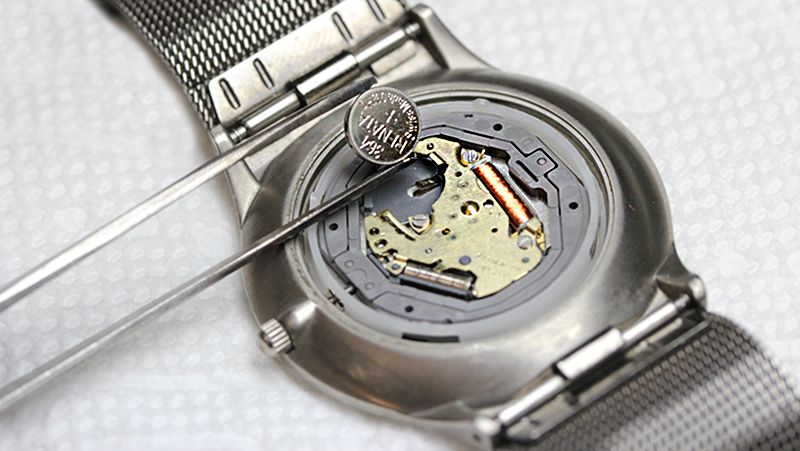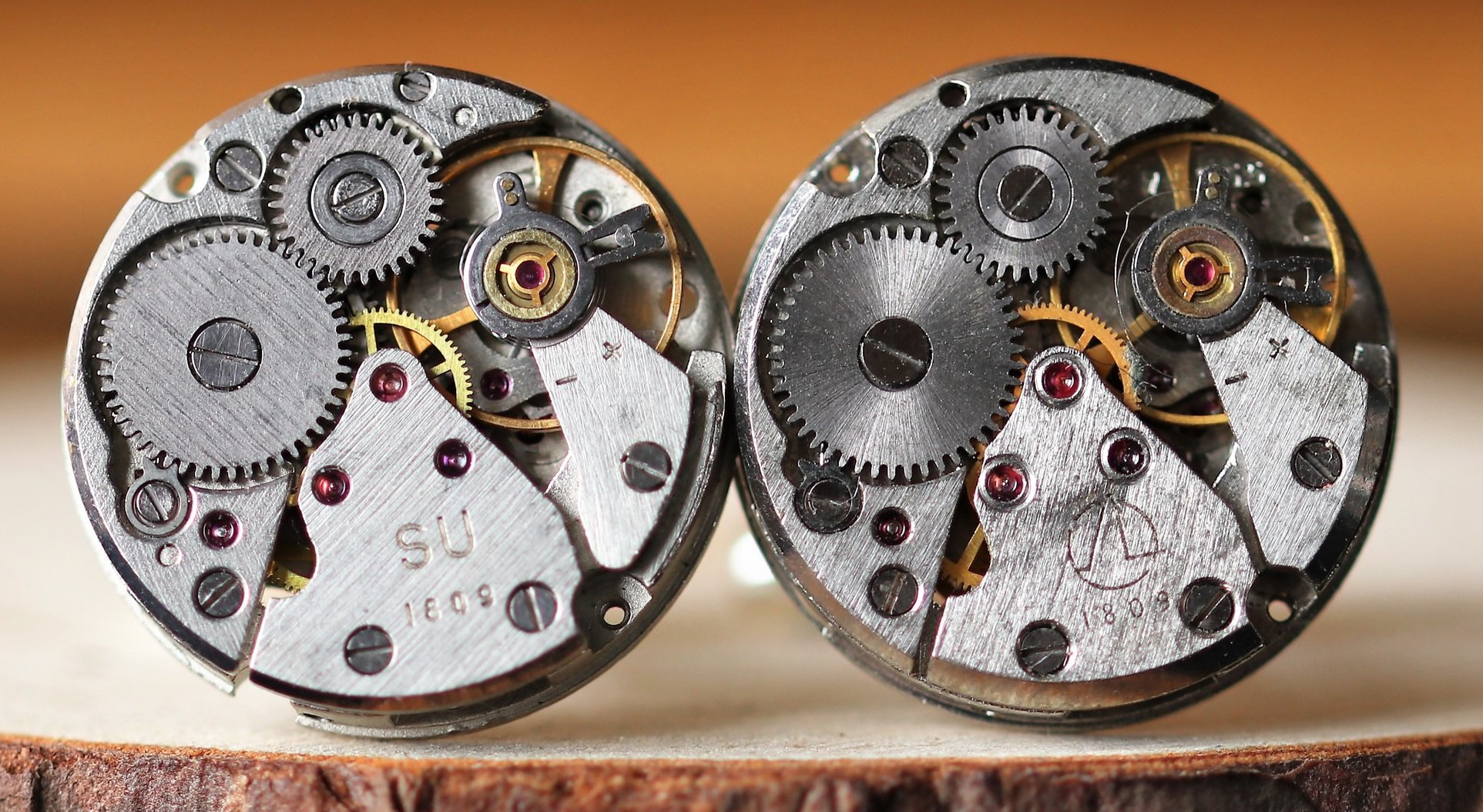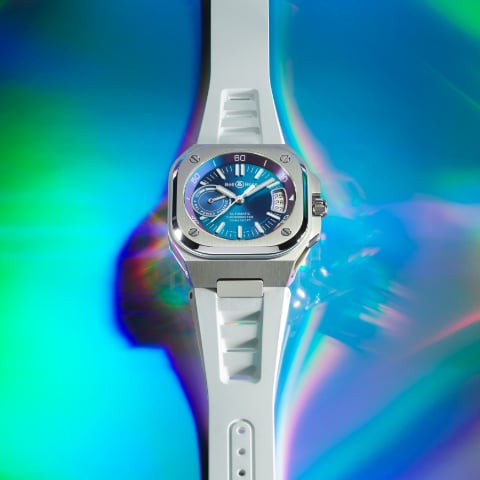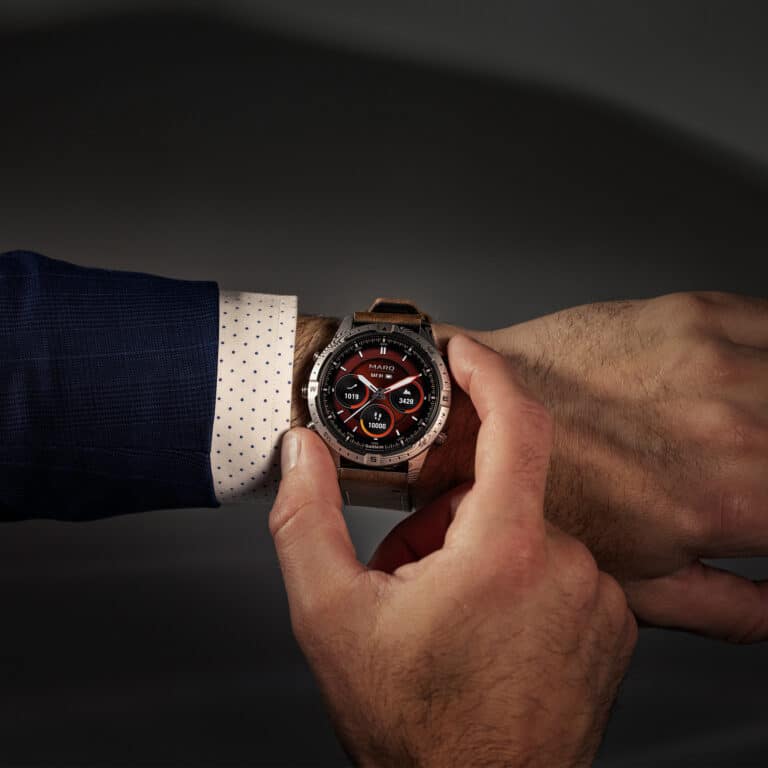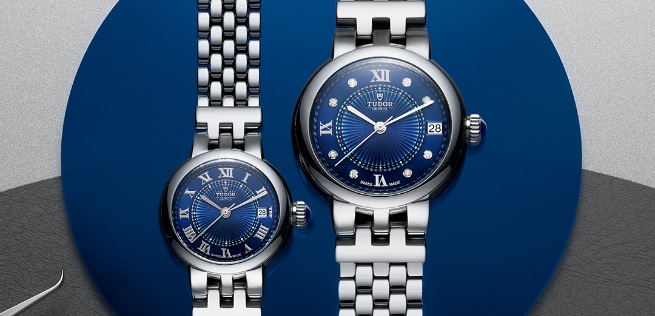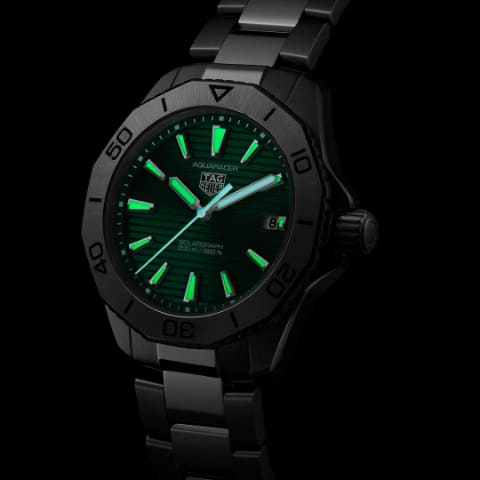A watch’s movement is quite easily one of the most important parts of the watch. Not only does it decide which functions will equip it, but it can make a huge difference on accuracy, cost and appearance. Ultimately, the best watch movement for you depends on what you value as a wearer. Do you require something with incredible accuracy? Are you more concerned with keeping maintenance costs low? Or do you care less about the functions and want something that is beautifully decorated?
In this handy guide, we will give you a rundown of each of the major types of watch movements and give you pros and cons of each. We hope this helps you decide what is the best watch movement for you!
Quartz Movements
A quartz watch is a timepiece that uses a battery as its power source. It works by using an electronic oscillator to transmit an electric current through a piece of crystal quartz. This current vibrates at a high speed of around 3,768 times a second which is then released through a small stepping motor and converted into a single pulse every second. The consistent movement of the watch hands is a result of this pulse.
Benefits of Quartz Movements
- Cheaper – Since quartz movement are generally easy to produce and consist of fewer parts compared to mechanical movements, they are much cheaper to buy.
- Accuracy – Quartz movements are the most accurate variation of a watch movement with the average losing only 1-2 seconds per month. Some luxury watch manufacturers like Breitling have created their own quartz movements. Breitling’s SuperQuartz calibre is believed to be ten times more accurate than standard quartz equivalents.
- Low Maintenance – Since there are so few components used within a quartz watch, they require very little maintenance and will only need the battery replacing every 2-3 years. Battery replacements are typically affordable to carry out as well.
Disadvantages to Quartz Movements
- Lack of Craftsmanship – If you are someone who enjoys the unique and detailed craftsmanship of a mechanical movement, then a battery-operated watch will feel boring and uninteresting to you.
- Appearance – Unlike a mechanical movement, quartz watches are limited in design. Quartz watches are unable to have skeletonised dials or open case backs since there are too few components to show off.
Mechanical Watch Movements
A mechanical watch is powered by a combination of tiny, intricate components. The sole provider inside a mechanical movement is something called a mainspring. For the watch to start ticking, the mainspring must be wound up to then transfer the energy through a series of gear components including a balance wheel and an escapement, regulating a release of energy to power the watch. There are two different types of mechanical movements available: automatic and manual winding.
Benefits of Mechanical Movements
- Craftsmanship – One of the key benefits to owning a mechanical watch is being able to admire the effort and craftsmanship that goes into making then. The work that goes into making a mechanical movement is breathtaking and the variety of intricate components working together is almost like magic. When you consider the amount of time it takes for a watchmaker to piece together every tiny part of a mechanical movement, it puts the higher price point into perspective.
- Appearance – Some mechanical watches have glass case backs or skeletonised dials which allow you to witness the beauty of the mechanical movement through the watch’s design
- Longevity – A well-built mechanical watch will last a lifetime with proper care
- No Battery: There is no need to worry about having to have the battery changed in a mechanical watch since it does not have one.
- Accuracy – Although not as accurate as quartz calibres, mechanical movements are still impressively precise. Some luxury watch manufacturers have created movements that are chronometer certified. This means a watch has undergone a variety of tests and is accurate to -4 to +6 seconds a day.

Disadvantages of Mechanical Movements
- Price – Due to the extent of craftsmanship that goes into a mechanical watch, they tend to be more expensive that quartz watches
- Must be wound – It is necessary to manually wind mechanical movements whether that be by the crown or by wearing the watch frequently
- Higher Maintenance – Since mechanical movements consist of so many intricate components, it is necessary to get a mechanical watch serviced every 2-3 years to ensure it remains accurate and lasts a lifetime. Compared to a battery replacement in a quartz watch, mechanical watch services are more expensive.
